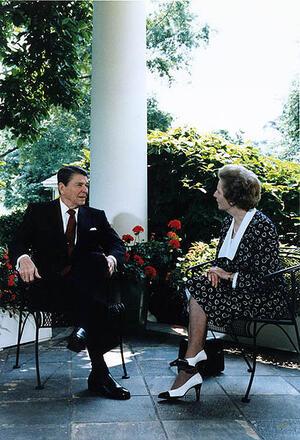Digging Up Women's Stories
By the time Ronald Reagan declared the first Women's History Month in March, 1987, I was a college junior. Women's history had already changed my life. In college I realized that women's history could do more than add an exceptional famous woman or two into the stories of famous men; asking about women could change the whole picture of history. Of course, it took me a little longer to realize just how many famous women's stories I didn't know.
Take Glikl of Hameln, a German Jewish woman who wrote a memoir in the 1690s. My history teachers used Glikl as an example of the traditional Ashkenazi Jewish woman. In their selections from her book, she was a pious lady who loved her husband and children. Yes, she was funny, and she'd lived through exciting events in Jewish history. But the point of her memoir, it seemed, was just to give the flavor of Jewish life. The people presenting her didn't seem to take Glikl herself seriously.
My view of Glikl changed when I heard one of my intellectual heroes, the historian Natalie Zemon Davis, speak at Harvard in 1995. Davis's admirers packed the room. The author of The Return of Martin Guerre was tiny and wore a red suit. She claimed her own Jewish identity by concentrating her Harvard talk on Glikl. Davis turned Glikl from someone's boring grandmother into a well-traveled, fearless gem merchant.
Not that our bubbes were ever as boring as we thought. Our society frames women of the past as powerless and dull. Each time we discover a woman who does something, she seems exceptional because we never learned about the women who accomplished things before her.
Natalie Zemon Davis was not the first Jewish woman to rediscover Glikl. The Austrian-Jewish feminist Bertha Pappenheim (1859-1936) claimed Glikl as an ancestor. Bertha Pappenheim could do anything. Translating a memoir from late medieval Yiddish to modern German wasn't the half of it. Pappenheim founded a huge Jewish women's organization, the Jüdischer Frauenbund. She turned the hands of Jewish women in Germany toward modern social work. And yet for decades she was mainly remembered as Freud's Anna O., her own accomplishments unremarked until recently.
So what do we learn from digging deeper into Glikl’s story? In her memoir, Glikl tells the story of Rebecca Lipmann, a Jewish housewife and detective. Mrs. Lipmann uncovered the murders of two Jewish men in Altona in 1687. In Glikl's account, Jews were not the passive victims of anti-Jewish violence. Jewish women were not the most passive of the passive! Instead, a Jewish woman uncovered the truth of a seduction and murder scheme straight out of film noir. The Jewish community had to petition the governing authority, which was hostile to Jews, to dig for the bodies. Mrs. Lipmann talked them into taking the risk.
When the community exhumed the bodies, three things happened. The Jewish community proved their accusation against a powerful man to the non-Jewish authority. They stood up to discrimination, violence, and injustice. Second, the Jewish families were able to rebury the anonymously interred Jewish corpses. Third, finding the bodies freed the widowed women to remarry, because they knew their husbands' sad status.
This is what it meant for me to apply the methods of women's history to Jewish history. We dig for the dead, and sometimes the stories are gory. We dig through history and uncover a tradition of Jewish women writing our own lives. We are part of something longer and greater—a chain of women who stand up against injustice through the medium of story. Women's history changes everything.







